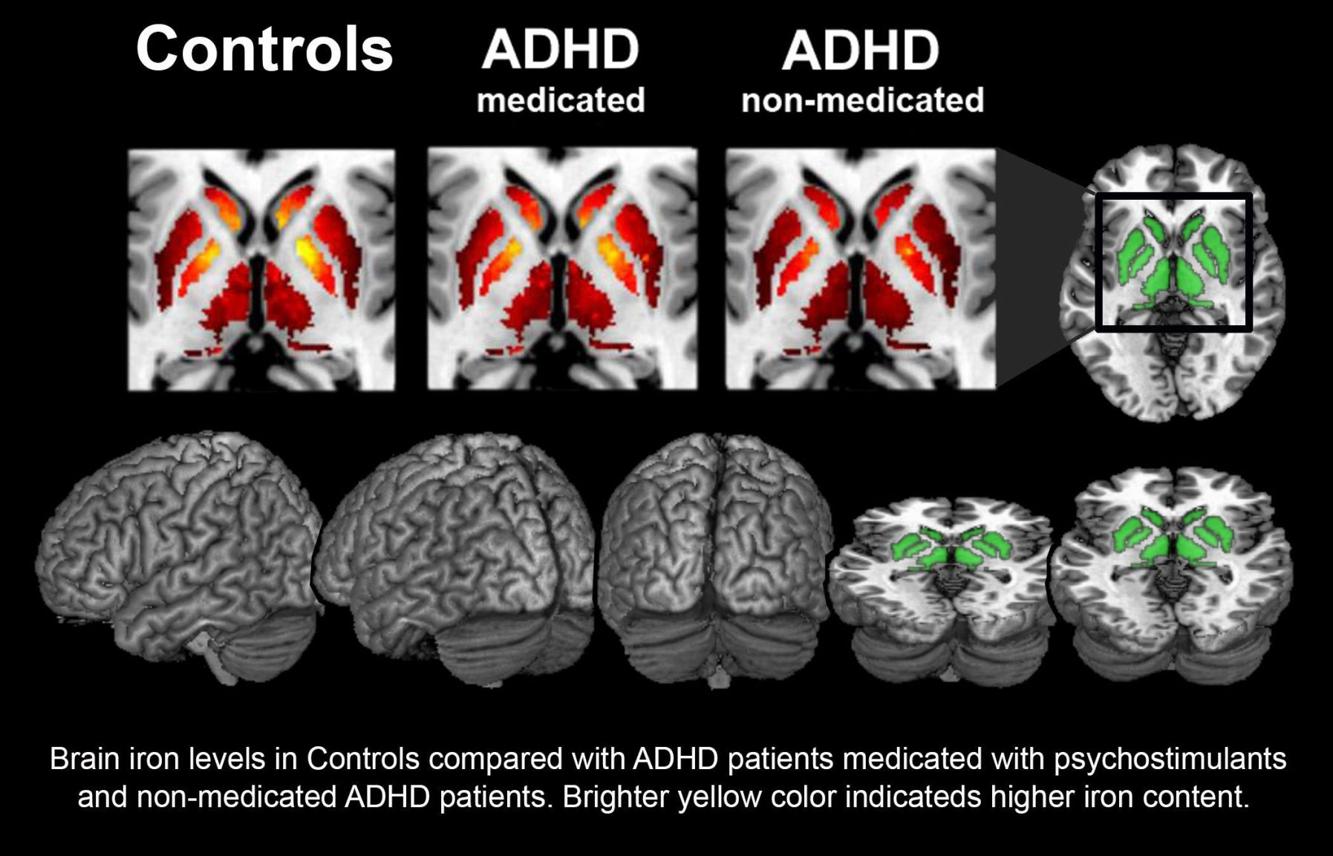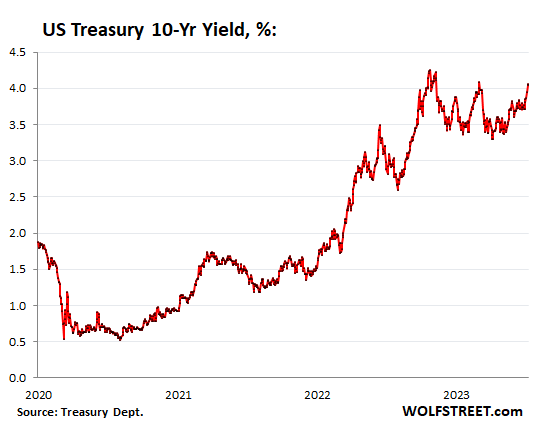The Impact Of Brain Iron On ADHD And Cognitive Aging

Table of Contents
Brain Iron and ADHD
The connection between brain iron and ADHD is a growing area of research. While not yet fully understood, emerging evidence suggests a complex interplay between iron dysregulation and the characteristic symptoms of ADHD.
The Role of Iron in Neurotransmitter Function
Iron is an essential cofactor in the synthesis and function of several neurotransmitters, including dopamine and norepinephrine – key players in attention, focus, and impulse control. These neurotransmitters are significantly implicated in the pathophysiology of ADHD.
-
Impact of Iron Deficiency: Iron deficiency can impair the synthesis of these crucial neurotransmitters, potentially leading to deficits in attention, executive function, and impulse control – core symptoms of ADHD. This deficiency can disrupt the delicate balance needed for optimal brain function.
-
Iron Levels in ADHD Individuals: Studies are investigating iron levels in individuals with ADHD, comparing them to neurotypical controls. Some research suggests that individuals with ADHD may have altered iron metabolism or levels compared to their peers. Further research is needed to clarify the nature and extent of this relationship.
-
Iron Supplementation as Adjunctive Therapy: Some researchers suggest that iron supplementation, under the careful guidance of a healthcare professional, may be a useful adjunctive therapy for some individuals with ADHD, particularly those with confirmed iron deficiency. It is crucial to note that this is not a standalone treatment and should always be considered alongside other established ADHD interventions.
Iron and Neuroinflammation in ADHD
Neuroinflammation, a state of chronic inflammation in the brain, is increasingly implicated in the pathophysiology of ADHD. Iron dysregulation plays a significant role in this inflammatory process.
-
Excess Iron and Oxidative Stress: Excess iron can contribute to oxidative stress, a state of cellular imbalance that leads to damage and inflammation. This oxidative stress, fueled by excess iron, can exacerbate neuroinflammation, potentially worsening ADHD symptoms.
-
Neuroinflammation and ADHD Symptoms: Neuroinflammation is thought to contribute to various ADHD symptoms, including impulsivity, inattention, and hyperactivity. The inflammatory response in the brain might disrupt the normal signaling pathways involved in these cognitive functions.
-
Therapeutic Targets: Reducing neuroinflammation through targeted therapies could represent a promising avenue for ADHD treatment. Research is exploring potential therapeutic interventions aimed at modulating inflammatory responses in the brain.
Brain Iron and Cognitive Aging
As we age, the accumulation of iron in the brain becomes increasingly significant, impacting cognitive function and increasing the risk of neurodegenerative diseases.
Iron Accumulation and Neurodegeneration
Iron accumulation in the brain, particularly in specific brain regions, is strongly associated with age-related cognitive decline and neurodegenerative diseases.
-
Oxidative Damage and Neuronal Cell Death: Excessive iron can catalyze the production of free radicals, leading to oxidative damage and ultimately, neuronal cell death. This cellular damage contributes to the progressive loss of cognitive function observed in aging.
-
Association with Neurodegenerative Diseases: A growing body of evidence links iron accumulation in the brain to the development and progression of neurodegenerative diseases such as Alzheimer's disease and Parkinson's disease. The precise mechanisms are still being investigated, but iron's role in oxidative stress is a key factor.
-
Iron Chelation Therapy: Iron chelation therapy, which involves using agents to bind and remove excess iron from the body, is being explored as a potential therapeutic strategy for neurodegenerative diseases associated with iron overload. Research continues to evaluate the safety and efficacy of this approach.
Iron Deficiency and Cognitive Impairment in Older Adults
While iron overload is a significant concern in cognitive aging, iron deficiency can also negatively impact cognitive function in older adults.
-
Anemia and Brain Function: Anemia, a condition characterized by low red blood cell count and reduced iron levels, can impair brain function by reducing the delivery of oxygen and essential nutrients to the brain.
-
Maintaining Adequate Iron Levels: It's crucial for older adults to maintain adequate iron levels through a balanced diet rich in iron-containing foods and, if necessary, supplementation. Regular monitoring of iron levels through blood tests is advisable, especially for individuals at risk of deficiency.
-
Exacerbating Age-Related Decline: Iron deficiency can exacerbate age-related cognitive decline, making it more challenging to maintain cognitive sharpness as we age. Addressing iron deficiency can contribute to improved cognitive function in older adults.
Research and Future Directions
Research into the role of brain iron in ADHD and cognitive aging is rapidly evolving. Significant advancements are needed to fully understand this complex interplay.
-
Current Research: Ongoing research is investigating the precise mechanisms by which brain iron influences cognitive function in both ADHD and aging. Studies are using advanced imaging techniques and biomarkers to assess brain iron levels and their relationship to cognitive performance.
-
Clinical Trials: Clinical trials are exploring the therapeutic potential of manipulating brain iron levels, such as through iron supplementation or chelation therapy, to improve cognitive outcomes in specific populations.
-
Biomarkers of Brain Iron Status: Identifying reliable biomarkers of brain iron status is crucial for early detection and personalized treatment strategies. Research is focused on developing non-invasive methods to accurately assess brain iron levels.
Conclusion
This article has highlighted the significant and multifaceted impact of brain iron on both ADHD and cognitive aging. Maintaining optimal brain iron levels throughout life is crucial for preserving cognitive function and reducing the risk of neurodegenerative diseases. Both iron deficiency and iron overload present significant challenges, emphasizing the need for careful monitoring and personalized management strategies. Further research is needed to fully elucidate the complex interplay between brain iron, ADHD, and cognitive aging and to develop effective therapeutic strategies targeting brain iron metabolism. Understanding the impact of brain iron on your health is a crucial step toward optimizing cognitive function. Learn more about maintaining healthy brain iron levels and consult with your healthcare provider to discuss any concerns regarding ADHD, cognitive aging, or iron status. Let's continue to explore the complex impact of brain iron!

Featured Posts
-
 The Evolving Chinese Automotive Landscape A Look At Bmw Porsche And The Future
Apr 29, 2025
The Evolving Chinese Automotive Landscape A Look At Bmw Porsche And The Future
Apr 29, 2025 -
 Key Developments In The Treasury Market April 8th
Apr 29, 2025
Key Developments In The Treasury Market April 8th
Apr 29, 2025 -
 Russias Ukraine Offensive North Korean Troop Deployment Confirmed
Apr 29, 2025
Russias Ukraine Offensive North Korean Troop Deployment Confirmed
Apr 29, 2025 -
 Nine Killed In Vancouver Filipino Festival Car Crash
Apr 29, 2025
Nine Killed In Vancouver Filipino Festival Car Crash
Apr 29, 2025 -
 Global Race To Attract Us Researchers Heats Up Post Trump Funding Cuts
Apr 29, 2025
Global Race To Attract Us Researchers Heats Up Post Trump Funding Cuts
Apr 29, 2025
Latest Posts
-
 The Hard Truth About Farm Life Amanda Owens Perspective
Apr 30, 2025
The Hard Truth About Farm Life Amanda Owens Perspective
Apr 30, 2025 -
 Amanda Owen The Reality Of Farming And Family
Apr 30, 2025
Amanda Owen The Reality Of Farming And Family
Apr 30, 2025 -
 Amanda Owen On The Challenges Of Family Life On The Farm
Apr 30, 2025
Amanda Owen On The Challenges Of Family Life On The Farm
Apr 30, 2025 -
 The Challenges Of Our Yorkshire Farm Reuben Owens Perspective
Apr 30, 2025
The Challenges Of Our Yorkshire Farm Reuben Owens Perspective
Apr 30, 2025 -
 Growing Up On Our Yorkshire Farm Reuben Owens Biggest Struggle
Apr 30, 2025
Growing Up On Our Yorkshire Farm Reuben Owens Biggest Struggle
Apr 30, 2025
